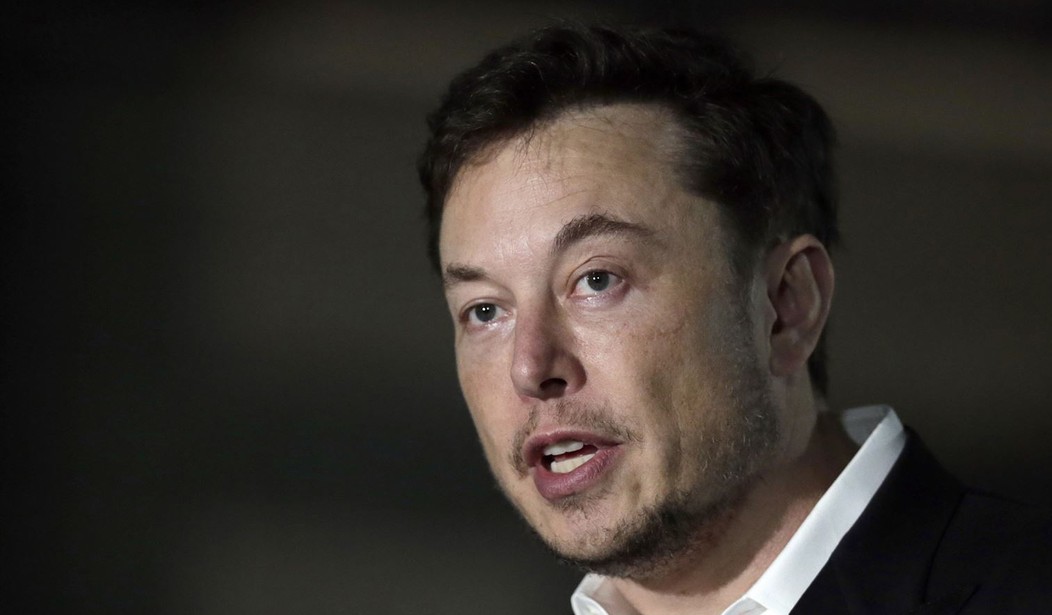I was pleased to see Michael Rubin of the American Enterprise Institute recently speak out about the national security implications of Elon Musk's SpaceX satellite launches for the Turkish government — satellites that some fear could one day be used by the Turkish military.
In the absence of federal intervention, SpaceX will launch another Turkish satellite in November, and Rubin examined in detail the implications the satellites could have in aiding regional instability, such as with Turkey supporting the genocidal war efforts of Azerbaijan.
It's no secret that the United States and Turkey have had a frosty relationship for the past several years. In these early months of the Biden administration, it's clear that the human rights abuses and regional conflicts brought on by President Erdogan are unlikely to change and that America should respond with measured restrictions.
SpaceX's work with Turkey is emblematic of a bigger problem: the lack of federal directives for businesses working with problematic foreign governments. This isn't the first time Musk has worked with one of America's adversaries.
While you can find Musk's car company Tesla building new facilities in Berlin and Austin, its largest operation is in China. Aided by billions of dollars in credit from communist regime-backed banks, the carmaker has made growing its operations in the People's Republic a top priority for its long-term growth. Musk has shown no hesitation to pursue deals with questionable regimes, and comments from earlier this year indicate his global expansion may not stop with China and Turkey.
Recommended
He has mentioned that "he's close to establishing a Tesla presence in Russia" and "in Kazakhstan and neighboring regions." Considering everything that's transpiring in that part of the world, those comments should raise red flags.
All of Musk's businesses rely on rare earth minerals, like neodymium and dysprosium in his EVs, lithium in his car batteries, and yttrium in his satellites. A U.S Geological Survey indicates that 70-percent of rare earth metals are currently coming out of China, with the middle of Eurasia containing a motherload of yet untapped deposits. So, in all likelihood, the region that Musk is referring to includes Afghanistan, which is home to one of the world's largest potential deposits — one that analysts believe China is likely to pounce on after America's military withdrawal.
For their part, the Chinese are well ahead of many western nations in acknowledging the Taliban as the legitimate government of Afghanistan — likely indicating that Beijing is willing to play ball with anyone who will bring stability to the region. With the Biden administration failing to address the U.S. supply chain problem and unable to give any clear guidance on our relations in that region, is it outlandish to believe Musk may find his way into business with the Taliban? Even if not directly, it certainly could happen through Chinese supply chains.
As a businessman, we shouldn't expect Musk to say no to a lucrative offer, let alone one critical to his future success. That's where the government should come in. It's the job of federal politicians and regulators to recognize the absence of this morality-motivator in business and control these entrepreneurs' dealings in adversarial countries when they assume national security risks.
That doesn't mean implementing blanket isolationism. The policy of the past — the hope of liberalization from our commerce — has assuredly failed. But with so much private investment already in some of these countries, as well as our reliance on their supply chains, it's unrealistic for the U.S. to decouple fully.
The benefit of American enterprise to even hostile regimes is clear, and implementing broad sanctions, such as the recent change in Cuba, gives a regime room to blame any resulting economic hardships on "unnecessary" American restrictions, making regime change even less likely.
However, the federal government cracking down on the individual national security risks that SpaceX, Tesla, and other corporate interests pose by partnering with these adversarial nations is different. The former is stopping all commerce for commerce's sake; the latter is stopping targeted commerce for national security's sake.
The federal government can find the right balance between respecting the free market and protecting U.S. safety by making more straightforward guidelines for businesses looking to operate internationally and consistently enforcing those measures with friends and foes. That means determining and making clear upfront what exactly is and isn't acceptable in the world of international businesses.
A satellite launch for Turkey may not seem like a big deal in the short run, but changes brought on by the digital economy are making it easier than ever for regimes worldwide to repress their citizens and break from democratic norms. It should be the goal of America's government to limit our businesses' involvement in perpetuating that trend. History won't look kindly on us if we don't.

























Join the conversation as a VIP Member